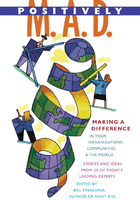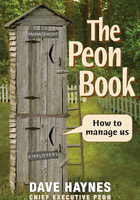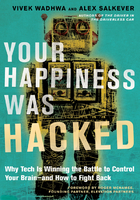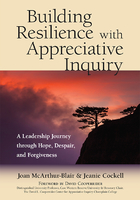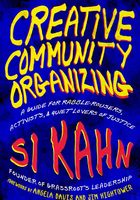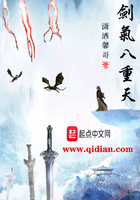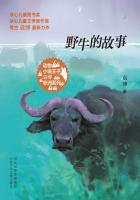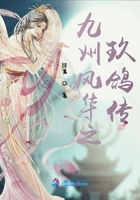Leadership Lessons from the Disenfranchised
Women
The prototypical disenfranchised group is women. For whatever reasons—and we are now beginning to understand some of them—women have been seen by men, and often by themselves, as on the fringes, and certainly not in charge.
Making generalizations about women, particularly if you happen to be a man, is dangerous. So it is essential to clarify the basis from which I speak and my perceived right for doing so. I speak as a man observing women in my part of the world. That my observations may be warped and biased is a given. As for my right to speak, I take it as true that all humans are both masculine and feminine. As I have come to explore my own feminine aspect, I find that disenfranchised woman is not simply a phenomenon of the external world. She exists in me as well.
The stereotypical view of women, as I was growing up, is captured exquisitely in the song from My Fair Lady in which Henry Higgins, the archetype of all male chauvinists, wonders, “Why can't a woman be more like a man?” Women, it seemed, were bereft of logic and were incapable of making plans or following them through. To the extent that they had a use at all, except as playthings for men, it was to be mothers and caretakers of children. Men, after all, were in charge of the world, and the girls were to be left to girlish things.
How we got to the sorry state represented by this stereotype is something for the psychologists and anthropologists to puzzle through. But that we were there, and still are in many ways, seems beyond dispute. Given such a view of woman, the resulting depravation and sheer loss of available human potential is inevitable, and nothing short of catastrophic. Fortunately, there has been somewhat of a turn, and that turn seems to be accelerating as more and more women assume their rightful position in society. Even the corporate “glass ceiling” seems to be giving a bit, although a number of my women friends have found assent to the executive suite a Pyrrhic victory, and subsequently have gone off to create their own fulfillment. That is the corporate loss, but at least the critical element of choice has been established, no longer constrained by stereotypes. Yet turn or not, the truly amazing fact remains that, even when the stereotype held its greatest power, women, or at least some women, managed quite well in the world. How they did that is the point of interest.
To the best of my knowledge, the definitive study of effective female strategies under the conditions of radical disenfranchisement has yet to be undertaken. When it has been done, I think we will learn that not only have a remarkable group of women accomplished incredible things, but also, and most important for our present situation, we (by which I mean everybody in this transforming world) have a lot to learn from their efforts and strategies. Failing such a definitive study, I must rely on what some might term anecdotal evidence—a lifelong, close encounter with a most remarkable group of women: my mother and her friends.
Mother was born at the turn of the century, into a world that was anything but hospitable to a bright, precocious young female. Going to school was allowed, but nobody expected it to amount to much, except as it might better prepare a young lady to assume her proper place in life, as the wife of a proper gentleman. College, or anything beyond that, was generally speaking simply not done.
Mother, it seemed, hadn't read the rule book. Not only did she go to college, but she also continued on for a graduate degree in English. Degrees in hand, she set forth for the world of work, eventually landing a job with a large New York publisher as an assistant editor. Her authors ranked among the best known of the time, and from the little that I know, she was respected in her work and enjoyed it immensely.
Then, for reasons unknown, she left that world and followed a path much more to the liking of those who judge such things. She got married. How or why all of that came to be, I haven't a clue. I do know that Mother's relationship to my father lasted only long enough for my conception and birth. And then she was on her own again.
Being on her own was not to be equated with being alone, for in fact she had a large circle of women friends, and I suppose some men friends as well, although they were never much in evidence. Mother and her friends maintained close contact year-round, but the center of their relatedness was in Maine, where she and I spent all our summers.
Mother's Maine house was her special world, populated exclusively by women. Although it was a strange world for a small boy to grow up in, it was fascinating in a variety of ways, most of which were related to Mother's friends and guests. Over the summers there was a succession of extraordinary women: concert pianists, world class athletes, folks from the world of business and academe. The conversation was civil and urbane, often joyful, and sometimes rational to a fault. And for sure, it bore no relationship to the stereotypical image of the empty-headed woman lamented by Henry Higgins. It seemed idyllic to me then, and in retrospect it appears as a feminine retreat, an isolated place and time where being female was no disadvantage.
Maine was a special place, but more interesting for our present discussion were mother's operations in the larger world. Although she never returned to work in a traditional sense, she was not without a lengthy list of good things to be done: Red Cross drives to organize, blood donor campaigns, fundraising events for the symphony orchestra, and church activities. Actually, her priorities were, in order of importance, the church and a few other things. Like many women before her and since, Mother discovered the church as a place where she could use her considerable talents. But unlike a lot of those women, she refused to remain in that narrow area known as woman's work. In fact, she demonstrated a disconcerting tendency for showing up in any number of places clearly labeled “men only,” particularly the vestry.
The vestry was the governing body of the local Episcopal church, and for as long as anybody could remember it had been the private preserve of men, so much so that vestry and vestrymen were synonymous. Mother changed all that. She became the first vestryperson.
I had many opportunities to watch Mother in operation, but how she did what she did as well as she did remained a mystery to me for some time. There was no question that she was effective, and that the things she set her sights on largely came to pass; but how she pulled it all off escaped me.
When she conversed with her male peers and colleagues, it sometimes seemed to me that she had totally lost her capacity for reason. She would begin with one point, leap to another, fall into inexplicable silence, only to reemerge from a totally unpredictable and apparently unrelated quarter. At times she appeared the quintessential scatterbrained woman. Yet I knew this lady to be the same one who could pursue a topic with single-minded rationality among her friends in Maine. But what I first took to be an obvious lapse of sense later emerged as careful strategy. Mother knew what she was doing.
Although she was never afraid to lead, in the traditional sense of that word, she also had a clear sense of her own limitations and endurance. Practically, this meant that she was constantly identifying coleaders and incessantly passing the ball off to them. Just about the time that the opposition (usually male) figured out who the leader really was, all that would change.
What I took to be scattershot thinking turned out to be Mother's way of playing the whole field. Although she was quite capable of going to the heart of an argument, she would rarely take the route of frontal assault. Rather, she would bounce ideas and comments all around the periphery until she had defined the field on which she wanted to play and given it a context to her liking. Only then would she start to draw the knot.
As a strategy, it was marvelous. Those who opposed her rarely knew where she was going until she got there, and then it was too late. Not only was the die cast by that time, but more often than not the opposition was thoroughly neutralized. Never opposing the other side directly gave Mother the space to effect alliances and isolate detractors. She knew all about not opposing force with force.
Above everything else, Mother was a lady. Not that she was just nice or proper—although she was certainly both of these—but rather, she gave deep meaning to the words honor and respect. No matter what side of an issue you might be on, and particularly if you were on the side opposite to her own, you were treated well. Doubtless I have idealized a most important person, and certainly I can recollect those times that Mother was less than perfect, even petty or manipulative. But through it all came a fundamental honor and respect that more than redeemed the nastier parts.
This aspect of Mother's strategy (and character) became obvious in a number of ways, but most particularly when she gave a small party. Crowds of people and the noisy party scene were not Mother's cup of tea. But for friends, and especially for colleagues when she wanted to get something done, a small gathering, informally but exquisitely architected, was the chosen field of play. No speeches, no dramatic appeals to recalcitrant opponents' “better nature,” nor charismatic summoning of the troops—just infinite attention to the details of making guests feel comfortable, honored, and respected.
As a witness, and sometime butler, to such occasions, I confess to a certain mystification as to how it all worked. A quiet word here, a fresh drink there, gentle corralling of complementary conversationalists into an eddy of the party's flow—Mother didn't like to dance, but she surely knew how to effect the magical movement of genuine communication. Call it what you will, I can only call it leadership.
A son's remembrances of his mother can scarcely qualify as objective reporting; yet I have seen the patterns and approaches manifested by my mother practiced by other ladies of a certain age. Too old to be part of, and possibly comfortable with, the women's movement of recent years, and too young to have participated in the suffragette marches, they nonetheless evidenced a style and power of leadership from which I think we can learn much. On the outside of formal power, they held enormous power to effect the changes they held to be important. Their mode of operation was not the standard pattern. They gained power by giving it away, competed by cooperating, rarely if ever opposed force with force, played the whole field with an acute sense of the dance, and above all, honored and respected everybody, and most especially their opponents. In a day when confrontational, charismatic, directive leadership is often idolized in its absence, it may well be that its loss is not to be lamented. Useful alternatives are available.

